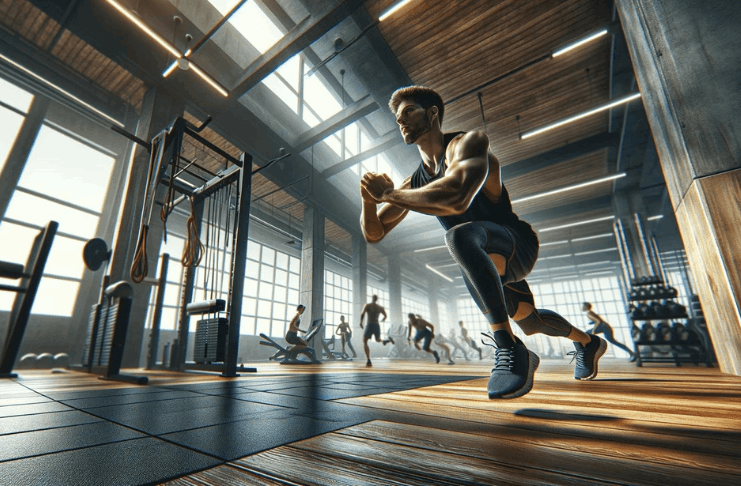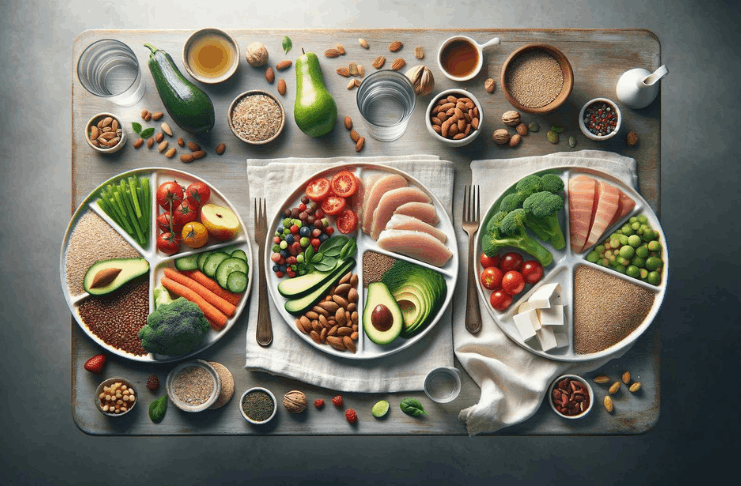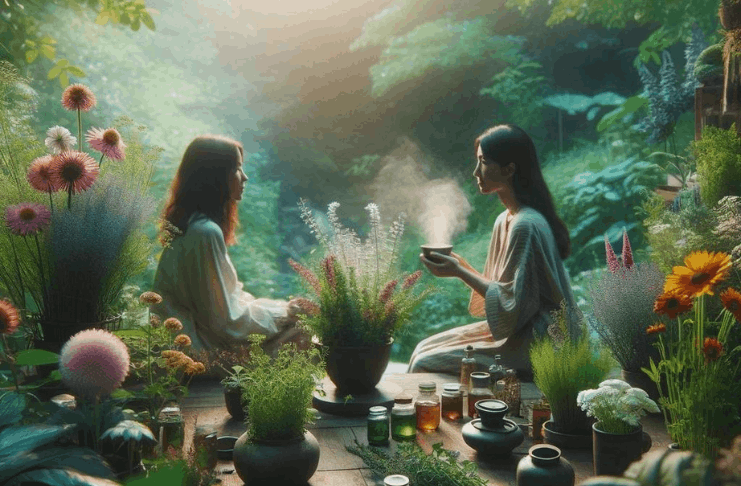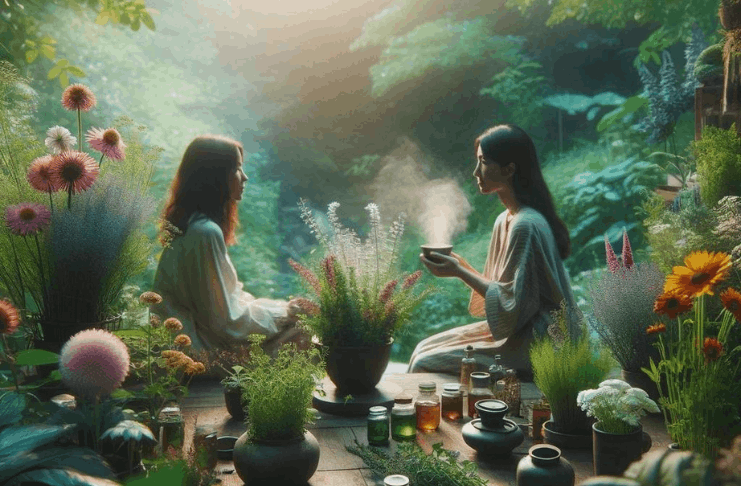The pursuit of youthful, radiant skin is a journey many embark on, with anti-aging skin routines at the forefront of this quest. This article unveils the secrets behind maintaining everlasting beauty, offering insights into effective practices and products.
Tailored to educate and inspire, it serves as a guide to navigate the vast world of skincare. Here, you’ll learn how to combat the signs of aging and keep your skin looking its best for years to come.
Why Skin Ages?
Skin aging is influenced by several factors: sun damage, genetics, and lifestyle choices play pivotal roles. Ultraviolet (UV) rays from the sun cause most of the skin’s visible aging, breaking down collagen and accelerating wrinkle formation.
Genetics determine how quickly the natural aging process unfolds, setting a baseline for how our skin responds. Lifestyle choices, including diet, smoking, and alcohol consumption, can either accelerate or slow down aging.
Stress and lack of sleep also contribute, leading to premature skin aging. Understanding these factors helps in crafting effective anti-aging strategies.
Signs of Skin Aging
The signs of aging manifest as fine lines, wrinkles, and a loss of elasticity. Sun exposure exacerbates fine lines, especially around the eyes and mouth, where the skin is thinner.
Wrinkles deepen with age and lifestyle habits, becoming more prominent on the forehead and cheeks. Elasticity decreases due to the breakdown of collagen and elastin, causing the skin to sag.
Changes in texture and the appearance of age spots are also common. Recognizing these signs is the first step in addressing them through skincare.
Critical Components of Anti-Aging Skin Routines
Effective anti-aging skin routines focus on prevention, maintenance, and correction. Let’s dive into the essentials for keeping skin youthful.
1. Sun Protection
Protecting your skin from the sun is crucial in any skincare regimen. Here’s why it’s non-negotiable.
Importance of Using Sunscreen
Sunscreen is the most effective tool against premature aging. It shields skin from harmful UV rays, preventing sunburn, fine lines, and wrinkles.
Regular use can also lower skin cancer risks. Choosing a broad-spectrum sunscreen ensures protection against UVA and UVB rays, which is crucial for maintaining skin health and appearance.
Recommended SPF Levels
An SPF of 30 or higher is recommended daily, even on cloudy days. For extended outdoor activities, a water-resistant, high-SPF sunscreen is essential.
Reapplication every two hours is necessary to maintain adequate protection, especially after sweating or swimming. Understanding SPF levels helps you select the right sunscreen for your skin type and exposure.
2. Moisturizing
Hydration plays a crucial role in keeping skin plump and elastic. Let’s look at how moisturizing contributes to skin health.
Role of Hydration in Maintaining Skin’s Elasticity
Hydration is vital for maintaining skin’s elasticity and smoothness. Moisturizers lock in water, reducing the appearance of fine lines and wrinkles.
They also support the skin’s barrier, protecting against environmental stressors. For aging skin, a hydrating routine is essential to replenish moisture lost over time.
Types of Moisturizers for Different Skin Types
Choosing the right moisturizer depends on your skin type:
- Oily Skin: Look for lightweight, water-based formulas.
- Dry Skin: Cream-based moisturizers with hyaluronic acid and ceramides are beneficial.
- Sensitive Skin: Fragrance-free and hypoallergenic options are best.
- Combination Skin: Gel-based moisturizers provide hydration without adding oiliness. Understanding your skin type allows for tailored hydration, a crucial step in anti-aging care.
3. Retinoids
These are powerhouse ingredients in anti-aging skin routines. They’re key to rejuvenating skin appearance.
Benefits of Retinoids
Retinoids promote cell turnover, bringing fresh, new cells to the surface. This process helps diminish the appearance of fine lines and wrinkles.
With consistent use, retinoids can fade age spots and improve skin texture. They’re considered one of the most effective topical anti-aging treatments available.
Introducing Retinoids into Your Routine
Start with a low concentration to minimize irritation. Apply retinoids to clean skin at night, as they can make skin more sensitive to sunlight.
Use them every other night, gradually increasing to nightly use as your skin adjusts. Always follow with a moisturizer to combat dryness.
4. Antioxidants
Antioxidants are crucial defenders against skin damage. They help keep your skin looking younger and healthier.
Role of Antioxidants
It protects the skin by neutralizing free radicals, harmful byproducts of UV exposure, and pollution. This action helps prevent premature aging, including wrinkles and sun spots.
Regular use of antioxidant-rich products can boost your skin’s radiance and firmness. They’re essential for a proactive anti-aging regimen.
Examples of Antioxidant-Rich Products
Vitamin C serums are renowned for their antioxidant properties, brightening skin tone and reducing signs of aging. Vitamin E is another powerful antioxidant, often found in moisturizers for its healing benefits.
Green tea extracts, with potent polyphenols, offer anti-inflammatory and antioxidant effects. Resveratrol from red grapes combats skin aging by defending against environmental stressors.
Lifestyle Factors That Affect Skin Aging
Your daily habits have a significant impact on how your skin ages. Let’s explore key lifestyle considerations.
Diet and Skin Health
A nutritious diet supports skin health from the inside out. Foods rich in antioxidants, like berries and leafy greens, combat oxidative stress.
Omega-3 fatty acids, found in fish, promote a healthy skin barrier. Hydration is crucial; drinking water helps keep the skin supple and hydrated.
Sleep and Stress Management
Quality sleep allows the skin to repair itself, reducing the appearance of aging. Stress causes a surge in cortisol, leading to collagen breakdown and skin aging.
Practices like meditation and yoga can help manage stress levels. Establishing a calming bedtime routine supports both stress reduction and skin health.
Exercise and Skin Benefits
Regular exercise boosts circulation, increasing oxygen and nutrient delivery to the skin. This enhanced blood flow helps nourish skin cells and carry away waste products.
Exercise also helps reduce stress, indirectly benefiting the skin. Incorporating regular physical activity into your routine can lead to a healthier, more youthful complexion.
Advanced Treatments and Technologies
Innovative treatments and technologies offer new ways to combat skin aging. They complement daily skincare routines.
Overview of In-Office Procedures
Laser treatments can address various signs of aging, from wrinkles to hyperpigmentation, by stimulating collagen production. Fillers restore volume to areas like the cheeks and lips, reducing the appearance of deep set lines.
Chemical peels remove the outer layer of skin, revealing a smoother, more youthful surface. These procedures should be tailored to individual skin types and concerns.
Emerging Technologies in Anti-Aging Skincare
Recent advancements include non-invasive devices that use radiofrequency and ultrasound energy to tighten skin and reduce wrinkles. LED light therapy targets specific skin issues, such as redness and acne, promoting healing and collagen production.
Microneedling, combined with topical treatments, enhances product absorption and effectiveness. These technologies provide targeted approaches to skin rejuvenation, offering options for those seeking to enhance their anti-aging efforts.
Building Your Anti-Aging Routine
Crafting an effective anti-aging routine is essential for maintaining youthful skin. Here’s how to customize it to your needs.
Tailoring Your Routine
Before diving into products, understand your skin type and concerns. This knowledge shapes your skincare strategy:
- Identify your skin type (oily, dry, combination, sensitive) to select suitable products.
- Address specific concerns such as wrinkles, dark spots, or loss of elasticity with targeted treatments.
- Choose products with proven anti-aging ingredients like retinoids, antioxidants, and peptides.
- Consider your lifestyle factors, such as diet and sun exposure, which can influence your skin’s needs. Understanding your unique skin profile is the first step in building a personalized anti-aging regimen.
Gradually Introducing New Products
Introduce one new product at a time to monitor your skin’s reaction. Start with small amounts, especially for potent ingredients like retinoids.
Wait 2-4 weeks before adding another product to your routine. This cautious approach helps avoid irritation and allows you to identify what works best for your skin.
Final Thoughts on Anti-Aging Mastery
The secret to everlasting beauty lies in a well-structured anti-aging skin routine tailored to your unique needs.
By understanding the causes of skin aging and implementing critical components like sun protection, moisturizing, and targeted treatments, you set the foundation for healthier, resilient skin.
Gradually incorporating new products and being mindful of lifestyle factors will enhance your routine’s effectiveness. Remember, consistency and patience are crucial in achieving the desired outcomes of your anti-aging efforts.
Read in another language
- Español: Rutinas de cuidado de la piel antienvejecimiento: Secretos para una belleza eterna
- Bahasa Indonesia: Rutinitas Perawatan Kulit Anti-Penuaan: Rahasia Kecantikan Abadi
- Bahasa Melayu: Rutin Penjagaan Kulit Anti-Penuaan: Rahsia Kecantikan Abadi
- Čeština: Rutiny proti stárnutí pokožky: Tajemství věčné krásy
- Dansk: Anti-Aging Hudplejerutiner: Hemmeligheder til Evig Skønhed
- Deutsch: Anti-Aging Hautpflegeroutinen: Geheimnisse ewiger Schönheit
- Eesti: Anti-Vananemise Nahahooldusrutiinid: Igavese Ilu Saladused
- Français: Routines de soins anti-âge : Secrets pour une beauté éternelle
- Hrvatski: Rutine za njegu kože protiv starenja: Tajne vječne ljepote
- Italiano: Risorse per la pelle anti-invecchiamento: Segreti per una bellezza duratura
- Latviešu: Ādas kopšanas rutīnas pret novecošanos: Noslēpumi mūžīgai skaistumam
- Lietuvių: Priešapsenio odos priežiūros rutina: Paslaptys, užtikrinančios amžinos grožio išsaugojimą
- Magyar: Az örök szépség titkai: Anti-Aging Bőrápolási Rutinok
- Nederlands: Anti-Aging Huidverzorgingsroutines: Geheimen voor Eeuwige Schoonheid
- Norsk: Anti-aldring hudpleierutiner: Hemmeligheter til evig skjønnhet
- Polski: Rutyny pielęgnacyjne przeciwstarzeniowe: Sekrety wiecznej piękności
- Português: Rotinas de Cuidados com a Pele Anti-Envelhecimento: Segredos para a Beleza Eterna
- Română: Rutinele de îngrijire a pielii Anti-îmbătrânire: Secrete pentru Frumusețe Veșnică
- Slovenčina: Anti-Aging Skin Routines: Tipy na Večnú Krásu
- Suomi: Ikääntymistä hidastava ihonhoitorutiini: Salaisuudet ikuiseen kauneuteen
- Svenska: Åldersbekämpande hudvårdsrutiner: Hemligheter till evig skönhet
- Tiếng Việt: Quy trình chăm sóc da ngừa lão hóa: Bí quyết để giữ mãi vẻ đẹp
- Türkçe: Gençlik Karşıtı Cilt Bakım Rutinleri: Ebedi Güzelliğin Sırları
- Ελληνικά: Ρουτίνες περιποίησης κατά των ρυτίδων: Μυστικά για αιώνια ομορφιά
- български: Анти-ейджинг грижи за кожата: Тайните на вечната красота
- Русский: Рутины ухода за кожей против старения: секреты бессмертной красоты
- српски језик: Rutine za negu kože protiv starenja: Tajne večne lepote
- עברית: רוטינות טיפוח עור נגד זיקוק: סודות ליופי שיימשך
- اردو: عمر بڑھاتے ہوئے جلد کے ساتھ مشق کلى۔ ہمیشہ جوانی کی خفائیاں
- العربية: روتينات العناية بالبشرة المضادة للشيخوخة: أسرار الجمال الأبدي
- فارسی: روتین های پوستی ضد پیری: رازهای زیبایی جاودانه
- हिन्दी: एंटी-एजिंग स्किन रूटीन्स: अनंत सौंदर्य के रहस्य
- ภาษาไทย: แผนการดูแลผิวหน้าต้านริ้วรอย: เคล็ดลับสำหรับความงามที่อยู่ได้นาน
- 日本語: アンチエイジングスキンケアルーチン:永遠の美しさの秘訣
- 简体中文: 抗衰老皮肤护理:永葆美丽的秘诀
- 繁體中文: 抗衰老肌膚護理:永恆美麗的秘訣
- 한국어: 노화 방지 피부 관리 루틴: 영원한 아름다움의 비밀











